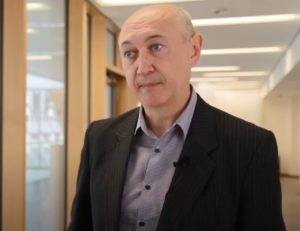Marking the fifth anniversary of the Paris climate agreement, the Zurich Climate Resilience Alliance warns that the world’s most climate vulnerable communities urgently need more funding to cope with climate change.
The warning follows this year’s devastating floods in places like Sudan, India, Bangladesh, Pakistan and Vietnam. These floods swept away thousands of homes and businesses, setback economic and human development and made millions of people homeless.
Colin McQuistan, Head of Climate and Resilience from Practical Action, works with the Alliance on building community resilience to floods in places like Bangladesh and Nepal.

Colin McQuistan, Head of Climate and Resilience from Practical Action
“The Paris Agreement committed the international community to pursue efforts to limit the temperature increase to 1.5°C above pre-industrial levels. But a recent UN report warned that we’re on track for a 3 degree rise in temperatures, even if existing commitments are met.
“This would have catastrophic impacts on the world’s most climate vulnerable people. It will lead to an increase in the frequency of potentially high impact natural hazard events across the world.
“The human cost of this would be staggering and would reverse decades of development gains and threaten the work presently underway to help people adapt to and cope with climate chaos.”
According to the Alliance, the world’s most vulnerable communities don’t receive their fair share of climate finance to help them tackle climate change.
“In our recent report, At What Cost we revealed that climate finance is not being spent where it is needed most, rather it is being directed to less climate vulnerable countries that are more stable.
“The international community must improve access to, and the quality of, adaptation finance so that the fragile states most vulnerable to climate change get the funds needed to build their resilience to hazards like floods.”
This year’s World Disaster Report from the IFRC reached the same conclusion. In addition, it found that over the past decade, 83 per cent of all disasters were caused by extreme weather and climate-related events such as floods.
“The IFRC found that these disasters killed more than 410,000 people and affected a staggering 1.7 billion people.
“The galling thing is we already have solutions to help people adapt and the evidence to show it works. Now what we need is the political will and the financial support to take it to scale,” said Mr McQuistan.
Responding to the urgent challenges of climate change, the Alliance calls on world leaders to:
- dramatically increase climate finance; as well as identify new and additional sources to help people adapt and build their resilience to weather related events like floods
- set ambitious new targets for climate finance for the next five years to meet growing needs; including doubling climate finance to the most fragile and climate vulnerable communities
- support fragile and vulnerable countries to adapt to the impacts of climate change and build resilience to natural hazards for the long-term
- meaningfully engage with climate vulnerable countries, fragile states, and marginalised communities so that their voice is central to the discussions in the lead up to COP26 in Glasgow
- scale up and champion locally-led action that strengthens the decision-making power of affected people, particularly marginalised groups (women, children, people with disabilities, indigenous peoples, etc.)
- join the UNFCCC’s “Race to Resilience” campaign and commit to global action on helping people adapt to climate change
“COVID-19 ambushed this year’s plans to massively ramp up action on climate change. But our response to the pandemic, which has involved mobilising trillions of dollars to protect people from the virus, working at speed to develop vaccines, and changing the way we shop, live and work, shows what humanity can do in a crisis.
“As bad as the pandemic is, the climate crisis will be much worse if we fail to act now. World leaders must meet, then exceed the commitments made five years ago under the Paris Agreement. They must focus with laser like intensity on supporting the people most vulnerable to climate change,” said Mr McQuistan.